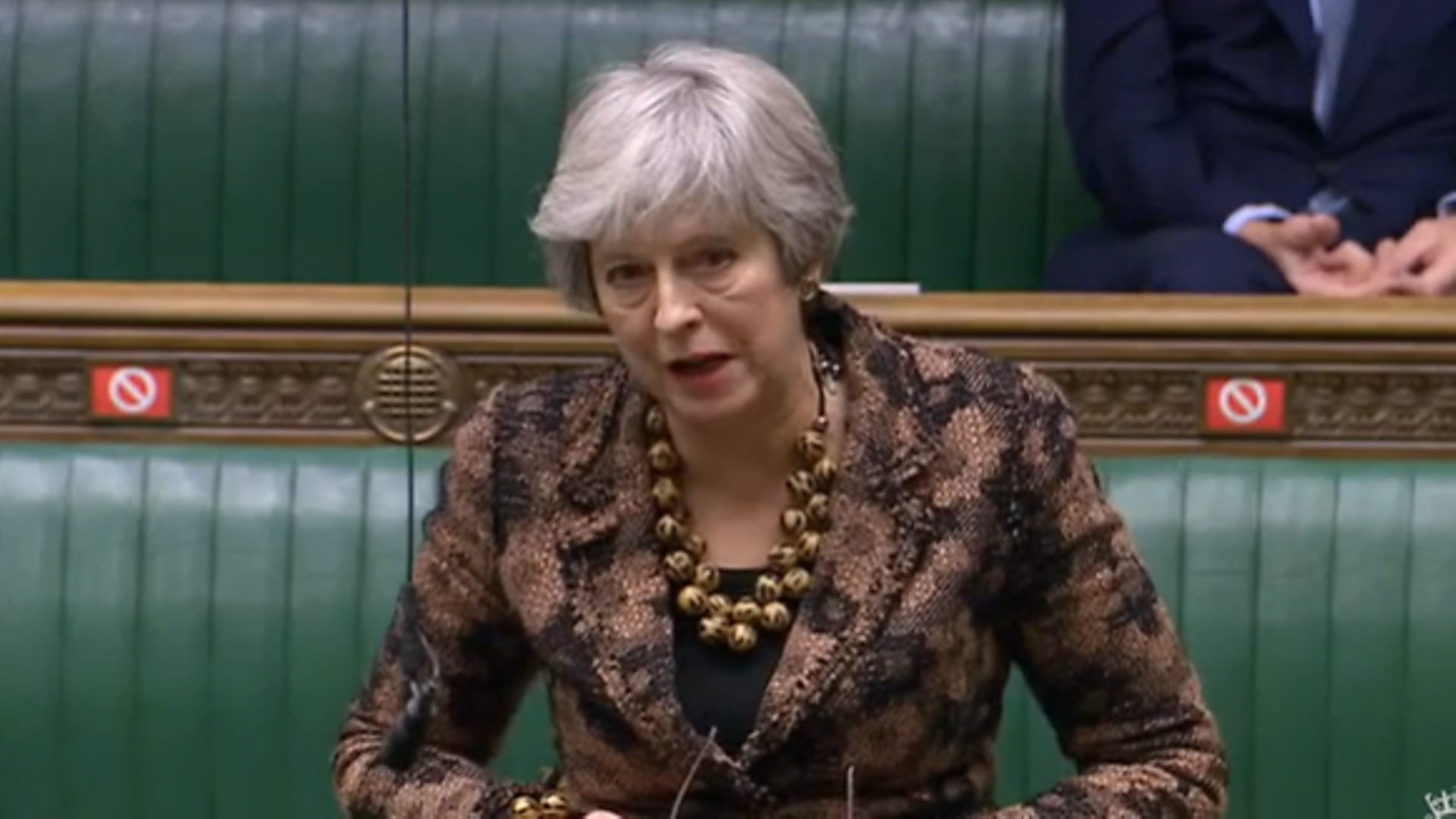
Theresa May has insisted Britain must reject “any push towards nationalism and isolationism” if it wants to prosper post-Brexit and deal with the effects of Covid-19.
The Conservative former prime minister also reiterated her criticism of Boris Johnson for cutting the UK’s aid and threatening to breach international law over Brexit, warning this risked undermining the government’s “Global Britain” agenda.
Her comments came after international trade secretary Liz Truss said poorer countries will be offered “more generous” terms to trade with the UK post-Brexit under a new “emerging markets” scheme.
Speaking during a debate on “Global Britain”, May said: “We need to move away from the world of strong men facing up to each other.
“We need to find more ways in which we can work with those who share our values because those values are under threat and we need to work together to protect them.
“Global Britain has that position this year that enables us to do this. But in order to do this, we need to live our values ourselves.
“And I have to say to the government that threatening to break an international treaty shortly after signing it, that threatening to break international law and that cutting our international aid does not enhance our impact of Global Britain, in fact it makes it harder for us as Global Britain to get our message around the world.
“We have been respected because of our 0.7%. Respected because of what we do, not just because we’re British.”
May sounded a warning over the future of the Union, adding: “The United Kingdom has a seat on the Security Council of the United Nations. I doubt that England would have a seat on the Security Council of the United Nations.”
And on the events which saw a mob of Donald Trump supporters attack the Capitol building in Washington DC, Mrs May said: “Sadly, what we saw last week in the United States shows us how fragile the value of democracy can be when it is under pressure from populism and nationalism, fuelled by messages disseminated on social media.
“And at the current point for the United Kingdom – post-Brexit, dealing with Covid, yet to deal with the societal and economic impacts of dealing with Covid – it is absolutely imperative that we reject any push towards nationalism and isolationism and that we recognise the importance of Global Britain.
“Indeed it is more important today than I think that it ever has been.”
On Northern Ireland, she said: “I particularly want to mention my concern about Northern Ireland at the moment, because we have seen that issue of those empty supermarket shelves, not all due to the protocol, but certainly the protocol is playing its part and the government needs to deal with this issue.”
Opening the debate, Truss sought to focus on the opportunities available to the UK.
She said: “Trade is the key not just to prosperity but also peace and co-operation between nations, and I want to reassure the House that we’re going to ensure that no country is left behind without the benefits of free and fair trade with the United Kingdom.
“Later this year we’ll be launching an emerging markets trade scheme which will offer the lowest-income countries a better deal when they’re trading with the UK. It’ll be more generous than the EU scheme, and it’ll help those countries on to the ladder towards prosperity through the enterprise and ingenuity of their people.”
Shadow international trade secretary Emily Thornberry said: “Every hour of delay that passes at Dover, every consignment that is turned away, every product that is, after all, having to face tariffs because of rules of origin, British businesses are losing money.
“But meanwhile in the rest of the world, we have not gained one single penny in extra trade from the government’s leap of faith. Not one single agreement that we didn’t have before, not one single export facing lower tariffs than it did in December.”
Warning: Illegal string offset 'link_id' in /mnt/storage/stage/www/wp-includes/bookmark.php on line 357
Notice: Trying to get property 'link_id' of non-object in /mnt/storage/stage/www/wp-includes/bookmark.php on line 37






